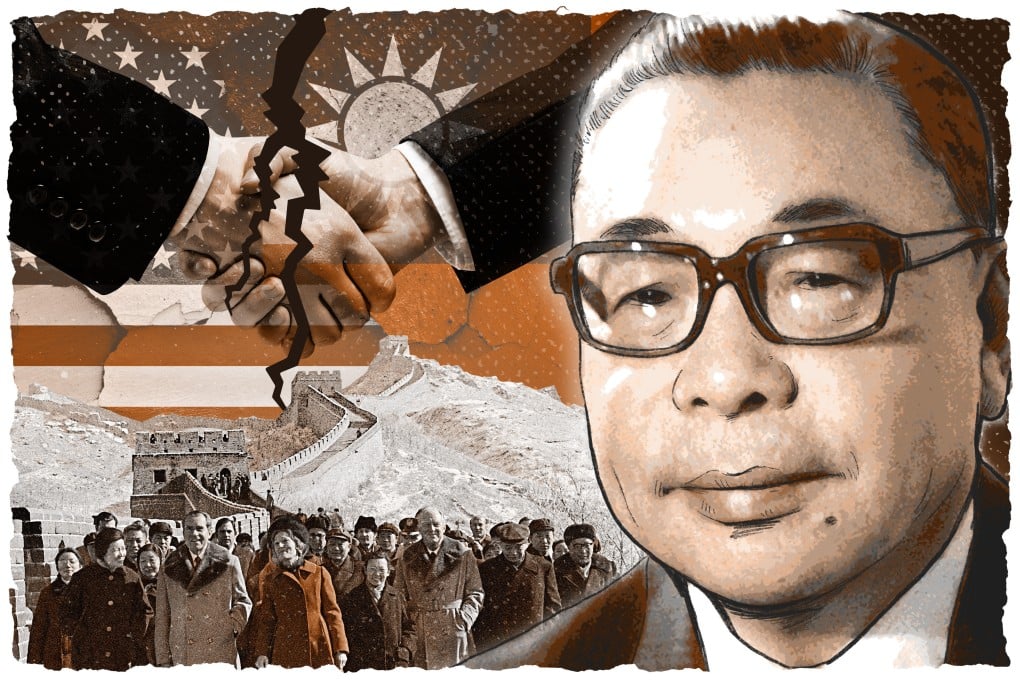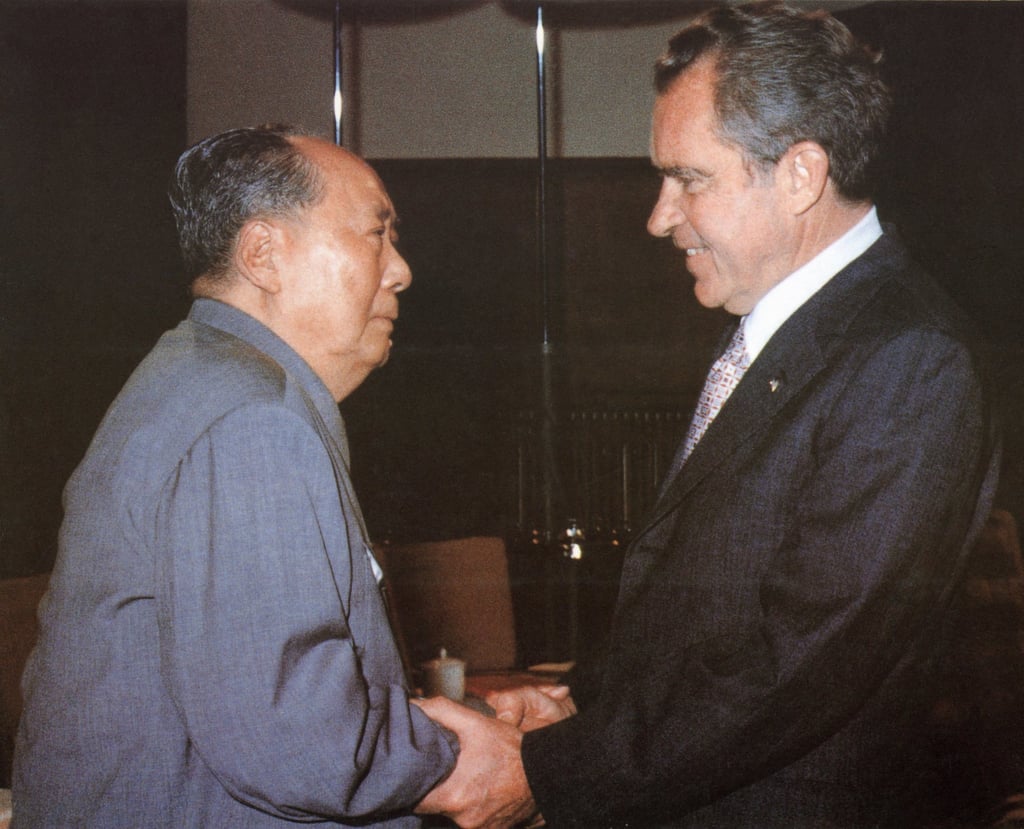Nixon and Mao: the handshake that turned Taiwan towards a new future
- Chiang Ching-kuo inherited his father’s ambitions to retake mainland China but Washington’s embrace of Beijing shattered those hopes
- In the aftermath, the island embarked on a path of self-reliance that made it into an Asian tiger

The sting from that handshake remained with Chiang until his death in January 1988, and confirmed to him a belief he already held strongly – that “imperialistic America” would easily sell out its friends “in exchange for its own despicable goals”.
The moment also ended once and for all Chiang’s hopes of realising his father’s long-held ambition of reclaiming the mainland, and set him on a path that helped turn Taiwan into the industrial tiger that it remains today.

Chiang followed his father to Taiwan after the KMT’s defeat in the Chinese civil war in 1949. Chiang Kai-shek originally hoped to set up an interim government on the island as the redoubt for reclaiming the mainland. But with Nixon’s visit – which opened the door to normalisation of US-China ties – all family hopes of that ambition were shattered.
Chiang’s anguish and frustration with the United States are documented in his personal diaries, now held at Stanford University’s Hoover Institution.